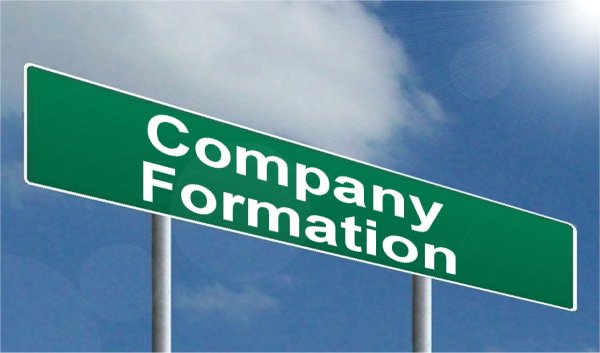Navigating the Complicated World of Firm Formation: Insights and Approaches
As business owners established out to browse the complex globe of business formation, it ends up being important to furnish oneself with a deep understanding of the complex subtleties that define the process. From selecting the most suitable organization framework to making certain rigid lawful compliance and developing effective tax obligation preparation methods, the path to creating an effective organization entity is filled with complexities.
Business Framework Choice
In the realm of company development, the important decision of selecting the ideal service structure lays the structure for the entity's functional and legal framework. The selection of organization structure significantly influences numerous facets of the organization, including taxes, obligation, management control, and conformity demands. Entrepreneurs need to very carefully assess the available choices, such as sole proprietorship, collaboration, limited responsibility company (LLC), or firm, to figure out the most appropriate framework that lines up with their organization goals and conditions.
One typical framework is the single proprietorship, where the organization and the owner are thought about the exact same lawful entity. Recognizing the subtleties of each organization structure is important in making a notified decision that establishes a strong foundation for the firm's future success.
Lawful Conformity Essentials
With the structure of a suitable organization framework in place, making certain legal compliance fundamentals becomes extremely important for securing the entity's operations and keeping regulative adherence. Lawful compliance is crucial for firms to operate within the borders of the law and stay clear of prospective fines or legal concerns.
To guarantee lawful conformity, firms need to routinely examine and upgrade their treatments and plans to mirror any kind of adjustments in regulations. Seeking legal counsel or compliance experts can further help companies navigate the complex legal landscape and stay up to day with evolving regulations.
Tax Obligation Preparation Factors To Consider

Additionally, tax planning ought to include methods to make use of readily available tax obligation reductions, rewards, and debts. By purposefully timing earnings and costs, companies can possibly decrease their taxed income and overall tax obligation problem. It is likewise essential to stay educated regarding changes in tax regulations that may affect the organization, adjusting techniques accordingly to continue to be tax-efficient.
Moreover, international tax obligation planning factors to consider might arise for organizations running across boundaries, involving intricacies such as transfer prices and foreign tax obligation credits - company formation. Looking for assistance from tax experts can aid navigate these details and create a thorough tax obligation strategy customized to the firm's demands
Strategic Financial Management
Efficient monetary monitoring entails a comprehensive method to managing a firm's financial sources, financial investments, and total economic health. By creating comprehensive budget plans that line up with the business's goals and goals, services can designate sources effectively and track efficiency against look at this website monetary targets.

One more important element is money flow administration. Keeping an eye on money inflows and discharges, handling capital effectively, and ensuring sufficient liquidity are essential for the everyday procedures and long-lasting practicality of a company. Additionally, strategic economic administration includes threat assessment and mitigation approaches. By determining monetary threats such as market volatility, credit score dangers, or regulatory adjustments, business can proactively execute procedures to guard their monetary stability.
Furthermore, economic reporting and evaluation play a vital function in critical decision-making. By generating precise financial reports and performing in-depth evaluation, organizations can acquire useful insights into their monetary efficiency, identify areas for renovation, and make informed tactical options that drive lasting growth and success.
Development and Development Strategies
To push a company towards raised market existence and productivity, tactical development and expansion methods must be thoroughly devised and carried out. One reliable technique for development is diversity, where a company goes into brand-new markets or offers new items or solutions to decrease dangers and exploit on emerging chances. It is vital for companies to conduct complete market study, financial analysis, and danger analyses prior to embarking on any growth method to make certain sustainability and success.

Final Thought
In final thought, navigating the complexities of firm development needs careful factor to consider of organization structure, legal conformity, tax preparation, monetary management, and development techniques. By strategically choosing the right organization framework, guaranteeing lawful compliance, preparing for taxes, managing financial resources effectively, and applying growth approaches, companies can establish themselves up for success in the competitive service environment. It is essential for businesses to come close to firm formation with a calculated and comprehensive attitude to achieve long-lasting success.
In the world of company formation, the essential decision visit our website of choosing the ideal business structure lays the structure for the entity's legal and functional structure. Business owners must very carefully review the available choices, such as single proprietorship, collaboration, restricted liability company (LLC), or company, to figure out the most ideal framework that aligns with their company goals and scenarios.
By developing detailed budgets that align with the business's goals and goals, organizations can allot sources successfully and track efficiency reference versus economic targets.
In conclusion, navigating the intricacies of firm development calls for mindful factor to consider of organization framework, legal compliance, tax planning, financial management, and growth strategies. By purposefully picking the appropriate organization framework, making sure lawful compliance, planning for taxes, taking care of funds properly, and carrying out growth techniques, companies can establish themselves up for success in the affordable company environment.